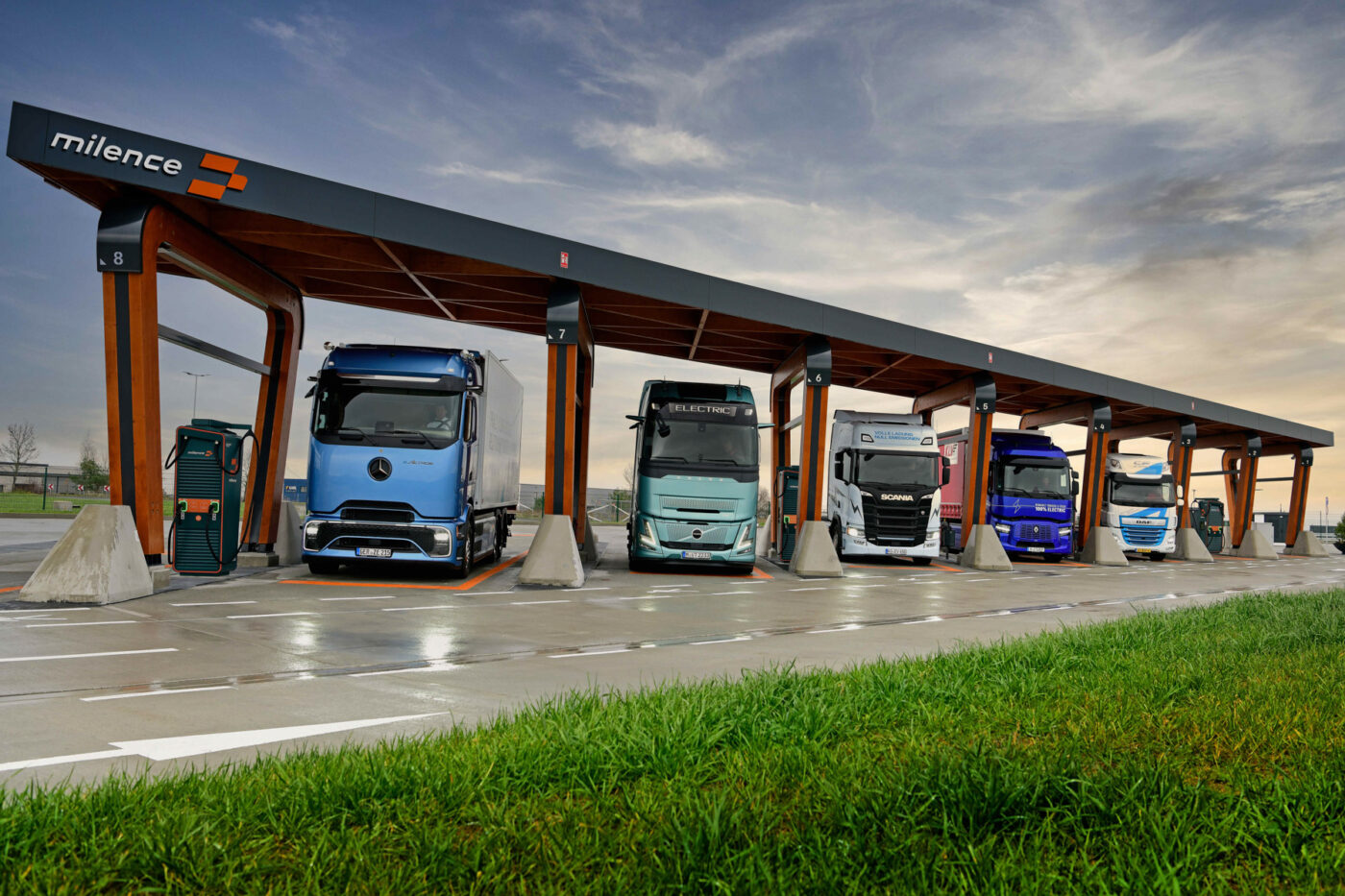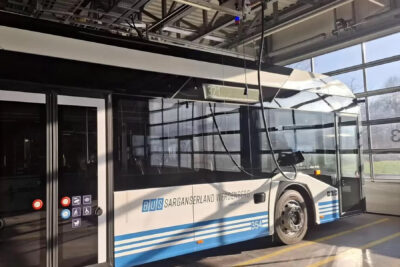Economic experts call for focus on electric instead of fuel cell trucks
In a joint statement, the French Conseil d’analyse économique (CAE) and the Franco-German Council of Economic Experts (FGCEE) advocate focusing on battery-electric trucks and developing the necessary infrastructure to decarbonise road freight transport. To accelerate decarbonisation, Germany and France should coordinate their strategies accordingly: “Aligning their strategies would strengthen domestic policies, improve infrastructure interoperability, and accelerate EU-wide regulatory alignment.”
The Franco-German Council of Economic Experts is an independent body that makes “policy recommendations on economic issues in which both countries have shared interests.” The co-chair of the advisory body on the German side is the chairwoman of the German Council of Economic Experts, Monika Schnitzer. Camille Landais co-chairs the French side. On the German side, the appeal was only signed by four of the five experts; Nuremberg-based energy economist Veronika Grimm did not sign.
Grimm had already refused to give her approval for a similar paper by the German Council of Economic Experts in 2024. She also sits on the National Hydrogen Council, which is committed to promoting H2 trucks and filling stations – so she is closely connected to the hydrogen industry.
Testing other drives, but not promoting them
Decarbonisation of freight transport is crucial to achieving the EU’s climate targets. It is particularly effective to focus on reducing emissions from road freight transport. In doing so, the FGCEE only have one of the currently competing drive technologies in mind: “Policies should focus on battery-electric trucks (BET) as these represent the most mature and market-ready technology for road freight transport. Hence, to ramp-up usage of BET public funding should be used to accelerate the roll-out of fast-charging networks along major corridors and in private depots,” the statement says.
The widespread use of “other low-emission drive technologies” – namely fuel cell trucks and catenary hybrid trucks – is “s is technically possible, but is not expected in the near future due to technical hurdles and a lack of market readiness.” Therefore, the economic experts encourage policymakers to take an “adaptive approach.” In addition to battery-electric trucks, they should continue “to develop, test and demonstrate” other drive systems. But nothing more. “However, the publicly funded development of an infrastructure for these alternatives makes little sense at the present time due to the existing uncertainties,” the report states clearly. In other words: no funding for hydrogen filling stations and truck overhead lines.
The problem with this is that the European AFIR regulation currently envisages the parallel development of charging stations for heavy battery commercial vehicles and hydrogen filling stations for corresponding fuel cell vehicles by 2030. “Since the rollout of infrastructure for low-emission transport must be coordinated at the European level, it would be advisable to reassess the AFIR’s infrastructure requirements for alternative fuels, and to allow flexibility if the relevance of the hydrogen solution is not demonstrated,” the experts write.
The often-called-for switch of freight transport from road to rail “is limited due to the fragmentation and lack of interoperability of the European rail network.” This leaves the switch to clean drives for the decarbonisation of road freight transport – and that is where the German experts and the French CAE have opted for battery-powered trucks. The main obstacle to switching from diesel to electric drives is said to be the availability of the charging infrastructure. Therefore, public funds are needed to build the necessary fast chargers along the motorways according to the megawatt standard MCS and the charging points in the depots – but only in the market ramp-up phase. “Furthermore, it is essential to reinforce European research and development in battery performance, fast-charging technologies and substitution of critical raw materials.”
In response, the German Association of the Automotive Industry (VDA) has spoken out against the demands of the economic experts and believes that the regulatory focus on one drive technology is wrong. “Particularly in the case of heavy-duty transport, fuel cell technology, in addition to electric mobility, will be able to make an important contribution to climate-neutral transport. Our industry is a leader in this field,” says VDA President Hildegard Müller. “For the automotive industry, one thing is certain: battery-electric drives, flanked by hydrogen – both for use in fuel cells and hydrogen engines – are central to the path to climate neutrality.”
sachverstaendigenrat-wirtschaft.de (press release; PDF), sachverstaendigenrat-wirtschaft.de (joint statement; PDF), logistra.de (VDA; in German)





1 Comment